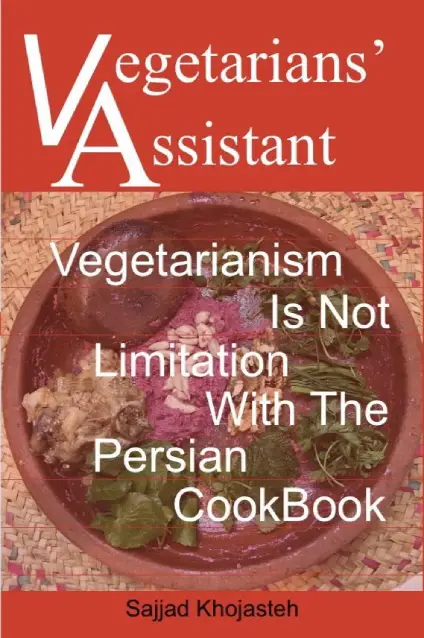Update Date: December 4, 2024
Imagine a lifestyle where every meal bursts with vibrant colors, tantalizing aromas, and nourishing ingredients, all while supporting your health and the planet. That’s the essence of vegetarianism—a dietary choice that’s not about giving up, but about gaining a world of culinary possibilities. Whether it’s a hearty lentil stew, a delicate herb-infused rice dish, or a refreshing dip, vegetarian food is a celebration of creativity and culture.
At its core, vegetarianism isn’t a limitation—it’s a journey into the vast realm of plant-based cuisine. It invites us to rethink what it means to eat well, focusing on wholesome ingredients that are as delicious as they are nourishing. While many associate vegetarianism with salads and side dishes, the truth is far more exciting. Around the globe, countless traditions boast dishes that are naturally vegetarian, proving that meatless meals can be just as satisfying, if not more so.
In this post, we’ll explore the nuances of vegetarianism, from its different forms to its undeniable benefits and manageable challenges. We’ll also delve into the richness of Iranian vegetarian cuisine, presenting 15 irresistible recipes that will transform the way you think about plant-based food. Whether you’re a lifelong vegetarian, considering a dietary shift, or simply curious about expanding your culinary repertoire, you’ll find something to savor here.
And if you’ve ever thought that vegetarianism might restrict your options, think again. Our cookbook, “Vegetarianism Is Not Limitation,” will show you that the possibilities are endless. Packed with healthy, flavorful recipes, it’s your gateway to discovering the joys of plant-based eating.

What Are the Different Types of Vegetarianism?
Vegetarianism encompasses a spectrum of approaches, each with its own unique rules and flexibility:
- Lacto-Ovo Vegetarian: Allows dairy products and eggs but excludes meat, fish, and poultry.
- Lacto Vegetarian: Includes dairy products but avoids eggs, meat, fish, and poultry.
- Ovo Vegetarian: Includes eggs but excludes dairy, meat, fish, and poultry.
- Pescatarian: Focuses on plant-based foods but includes fish and seafood.
- Vegan: Excludes all animal-derived products, including dairy, eggs, and honey.
- Flexitarian: Primarily plant-based but occasionally includes meat or fish.
Each type reflects personal preferences and ethical considerations, offering flexibility for those transitioning into a plant-based lifestyle.
Benefits and Side Effects of Vegetarianism
Benefits:
- Healthier Heart: A vegetarian diet, rich in fiber and low in saturated fats, promotes cardiovascular health.
- Weight Management: Plant-based diets can help maintain a healthy weight due to their lower calorie density.
- Lower Risk of Chronic Diseases: Reduces the risk of type 2 diabetes, hypertension, and certain cancers.
- Environmental Impact: Vegetarianism minimizes carbon footprints and conserves water resources.
- Ethical Satisfaction: Aligns with values of compassion and animal welfare.
Side Effects:
- Nutritional Deficiencies: Risk of low levels of B12, iron, zinc, and omega-3 fatty acids.
- Digestive Adjustments: Some may experience bloating due to increased fiber intake.
- Social Challenges: Eating out or attending events may require extra planning.
With proper planning and supplementation, these side effects can be mitigated, ensuring a balanced and fulfilling vegetarian lifestyle.
“Vegetarianism Is Not Limitation”: A Cookbook to Delight Your Taste Buds
Discover the boundless creativity of plant-based cooking with our cookbook, “Vegetarianism Is Not Limitation.” Filled with recipes that defy expectations, this book will prove that vegetarian cuisine is anything but restrictive. Each recipe is an invitation to explore new flavors, textures, and traditions. From hearty stews to refreshing salads, this cookbook has something for everyone. Let’s dive into the vibrant world of Iranian vegetarian dishes that will leave you craving more!
15 Healthy and Tasty Iranian Vegetarian Recipes
- Kashk-e Bademjan (Eggplant Dip): Creamy eggplant dip with yogurt and caramelized onions.
- Mirza Ghasemi: Smoked eggplant stew with tomatoes, garlic, and eggs (or tofu for vegans).
- Dolmeh (Stuffed Grape Leaves): Grape leaves stuffed with rice, herbs, and lentils.
- Ash Reshteh: Thick herb and noodle soup with beans, topped with yogurt or fried onions.
- Adasi (Lentil Stew): A hearty lentil dish flavored with turmeric and cumin.
- Kuku Sabzi (Herb Frittata): A fragrant frittata packed with fresh herbs and walnuts.
- Bademjan Polo: Rice layered with fried eggplants and saffron.
- Zereshk Polo (Barberry Rice): Rice mixed with tangy barberries, served with a vegetarian stew.
- Baghali Ghatogh: Northern Iranian dish with fava beans, dill, and eggs (or vegan substitutes).
- Shirin Polo: Sweet rice with carrots, orange zest, and nuts.
- Sabzi Polo: Rice infused with fresh herbs like dill, parsley, and cilantro.
- Eshkeneh: A simple yet flavorful onion soup with turmeric and eggs (or chickpea flour for vegans).
- Naz Khatoon: A tangy pomegranate and eggplant dip with walnuts.
- Tofu Khoresh-e Fesenjan: A modern twist on fesenjan with tofu, walnuts, and pomegranate paste.
- Loobia Polo: Rice mixed with green beans, tomatoes, and fragrant spices.
Vegetarian Food- An Invitation to Culinary Adventure
Vegetarianism is not just a diet—it’s an art of exploring new tastes, honoring the planet, and nurturing your body. The recipes in “Vegetarianism Is Not Limitation” demonstrate that plant-based cuisine can be as indulgent and satisfying as any other. Let these recipes guide you on a culinary adventure through Iranian flavors, proving that vegetarianism is a celebration of abundance, not a restriction.
FAQs
What is a vegetarian diet?
A vegetarian diet excludes meat and seafood, focusing on plant-based foods like fruits, vegetables, grains, legumes, nuts, and seeds.
Can vegetarians get enough protein without meat?
Yes, vegetarians can obtain sufficient protein from sources like beans, lentils, tofu, tempeh, nuts, seeds, and dairy or plant-based alternatives.
What nutrients do vegetarians need to pay attention to?
Key nutrients include vitamin B12, iron, calcium, omega-3 fatty acids, and protein. A varied diet with fortified foods and supplements can help meet these needs.
Is a vegetarian diet suitable for all age groups, including children and athletes?
Yes, a well-balanced vegetarian diet can be suitable for individuals of all ages, including children and athletes. Proper planning ensures all nutritional needs are met.
How can vegetarians receive enough iron?
Vegetarians can consume iron-rich plant foods such as beans, lentils, tofu, spinach, and fortified cereals. Combining these with vitamin C-rich foods enhances iron absorption.
Are there health benefits to adopting a vegetarian lifestyle?
Yes, vegetarian diets are associated with lower risks of heart disease, hypertension, type 2 diabetes, and certain cancers. They can also contribute to weight management.
What are some tips for dining out as a vegetarian?
Look for restaurants with diverse vegetarian options, communicate dietary preferences to the server, explore ethnic cuisines that often have plant-based dishes, and don’t hesitate to ask for modifications.
Can vegetarians still enjoy flavorful and diverse meals?
Absolutely! Vegetarian cuisine offers a wide range of delicious options. Experimenting with herbs, spices, and diverse cooking techniques can elevate the flavor of plant-based meals.
